Der nachfolgende Text basiert auf einem Auszug aus der GDI-Studie «Prävention im Umbruch», die über unsere Website bezogen werden kann.
Viele von uns sind Gewohnheitstiere und tun täglich etwa das Gleiche. 38% aller Österreicher und Österreicherinnen geben ihrem Partner jeden Morgen ein Küsschen. Im Bad verbringen sie dann im Schnitt etwa 15 Minuten mit Zähneputzen, Körperpflege und Styling. Und 83% von ihnen konsumieren täglich – bevor sie aus dem Haus gehen – eine Form von Medien.
Jüngere bevorzugen vor allem digitale Inhalte, Ältere gedruckte Tageszeitungen. 85% der 12- bis 17-Jährigen in Deutschland verbringen etwa drei Stunden pro Tag auf WhatsApp, Instagram und dergleichen. Schweizer und Schweizerinnen sind täglich im Schnitt etwa 1,5 Stunden im Verkehr unterwegs. Häufig zur gleichen Zeit und auf derselben Strecke, etwa im allmorgendlichen Pendlerzug.
In einer Studie, in der die Teilnehmenden stündlich angaben, was sie gerade tun und woran sie denken, fanden Forschende um die Psychologin Wendy Wood heraus, dass 40% unseres Alltags durch Gewohnheiten bestimmt sind.
Gewohnheiten wurden dabei relativ eng als Verhalten definiert, das täglich am immer gleichen Ort stattfindet. Weitet man die Definition von Gewohnheiten auf Verhaltensweisen aus, die zwar regelmässig, jedoch nicht täglich stattfinden (zum Beispiel Haare waschen, Fitnesscenter-Besuche oder der «Tatort» am Sonntag), so ist anzunehmen, dass mehr als die Hälfte des Tages mit Gewohnheiten verbracht wird.
Auch viele gesundheitsrelevante Verhaltensweisen entsprechen der engen Definition von Gewohnheiten. So kommt die Studie von Wood zu dem Ergebnis, dass die allermeisten Hygienepraktiken wie Duschen, Zähneputzen oder Händewaschen täglich und am gleichen Ort stattfinden. Aber auch die Hälfte aller Ernährungs- oder Sportverhalten, das immer gleiche Frühstück oder das Joggen nach Feierabend sind nach dieser Definition Gewohnheiten.
Gewohnheiten laufen oftmals wie von alleine, quasi im «Autopiloten» ab. Laut einer Studie von Lally et al. muss man ein Verhalten über 66 Tage täglich wiederholen, um es zu einer automatisierten Gewohnheit zu verdichten. Genau genommen hatte es nach 66 Tagen die Hälfte der Versuchsteilnehmenden automatisiert, wobei es Ausschläge nach oben und unten gab: Ein Versuchsteilnehmer internalisierte die Gewohnheit bereits nach 18 Tagen, eine andere Person brauchte dagegen 256 Tage. Einzelne Tage, an denen das Verhalten ausgesetzt wurde, waren vertretbar. Wichtig war aber ein stabiles Umfeld, von dem das automatisierte Verhalten ausgelöst wird.
Gewohnheiten werden kaum hinterfragt. Zumindest nicht im Moment der Ausführung. Wie auch, wenn man bei der Ausübung an etwas anderes denkt? Das kann zwar von Vorteil sein, wenn man sich nicht jedes Mal von Neuem überlegen muss, ob, wie und wann man die Zähne putzt. Wäre das nötig, würde man es vermutlich seltener tun. Doch natürlich können sich auch ungesunde Gewohnheiten einschleichen, bei denen es wünschenswert wäre, innezuhalten und sich zu fragen, was man da eigentlich gerade tut.
Die Studie «Prävention im Umbruch» erklärt, wie schlechte Gewohnheiten am effektivsten abtrainiert werden.
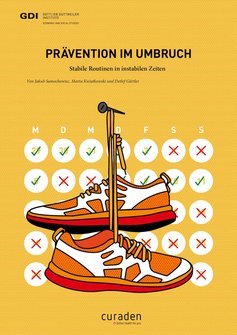
Studie, 2021 (kostenloser Download)
Sprachen: Deutsch, Englisch
Format: PDF
Im Auftrag von: Curaden
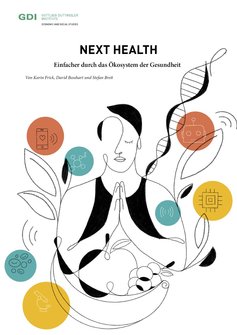
Studie, 2020 (kostenloser Download)
Sprachen: Deutsch, Englisch, Französisch
Format: PDF
Im Auftrag von: sminds AG
Kristian Villadsen: Wir brauchen gesunde Städte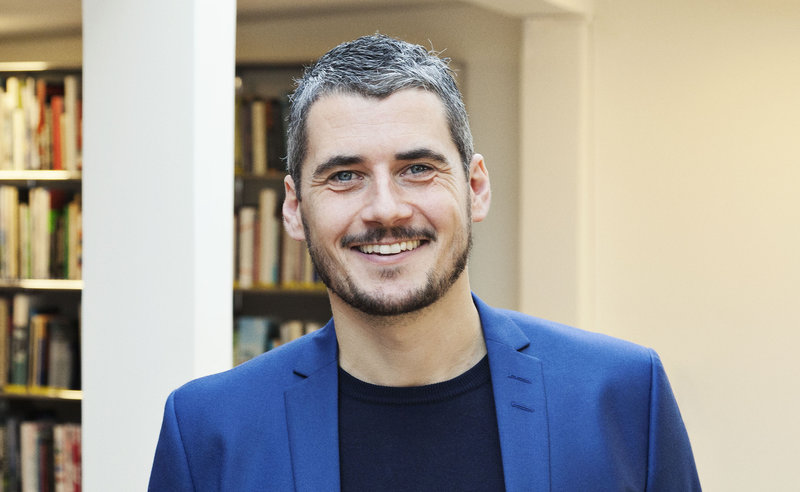
Laut Kristian Villadsen, Partner und Director beim renommierten dänischen Architekturbüro Gehl Architects, spielt die Gesundheitsförderung eine wichtige Rolle in der Planung von Städten. Lesen Sie hier ein Interview mit Villadsen aus der GDI-Studie «Prävention im Umbruch».
«Präventionsarbeit wird nicht nur wichtiger, sondern auch wirkungsvoller»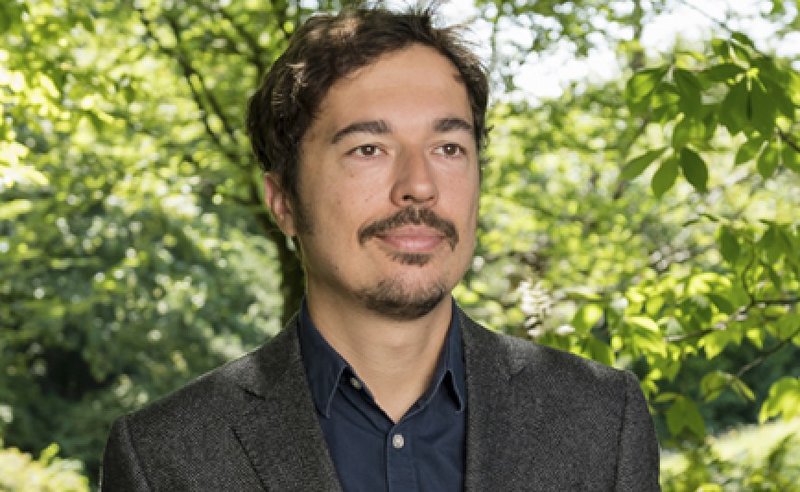
Die Pandemie hat viele Gewohnheiten unseres täglichen Lebens verändert. Davon waren auch gesundheitsfördernde Verhaltensweisen betroffen. Wie sehr, sehen Sie im folgenden Vortrag von der GDI-Konferenz «Prävention im Umbruch».
Vision für die Apotheke 2030
Der Gesundheitsmarkt und damit das Geschäftsfeld der Apotheken verändert sich stark. Vier Entwicklungen bestimmen das Verständnis der Apotheke in zehn Jahren: sie wird mehrschichtig, verknüpft, standortunabhängig und vernetzt.
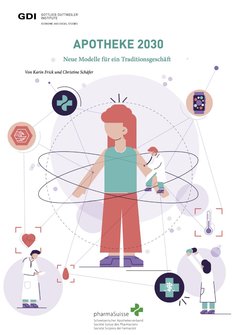
Studie, 2020 (kostenloser Download)
Sprachen: Deutsch, Französisch
Format: PDF
Im Auftrag von: pharmaSuisse